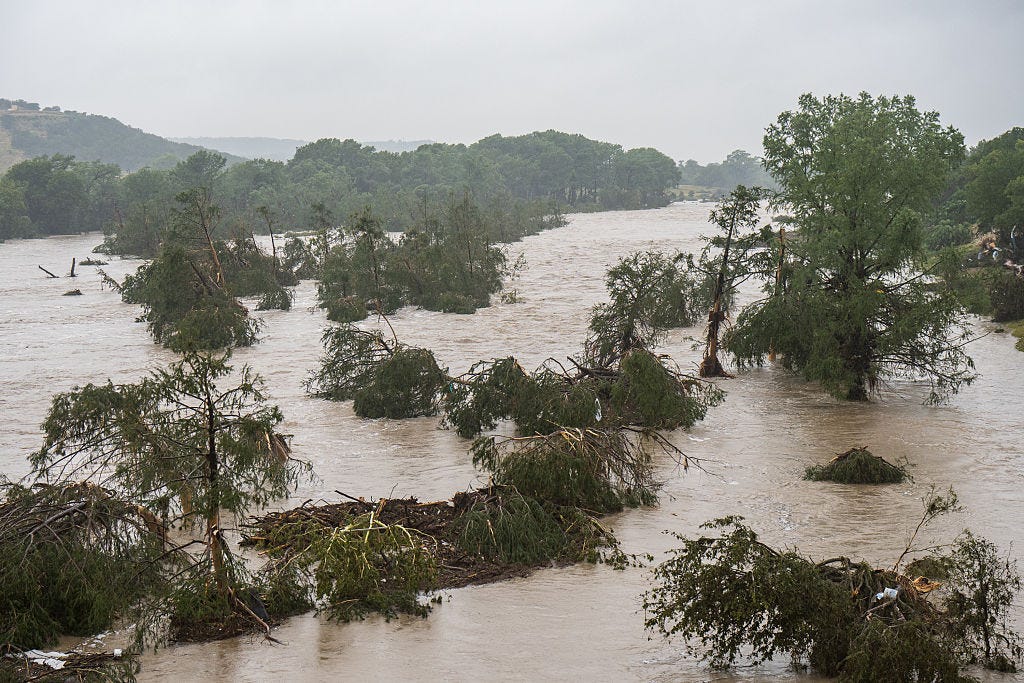Too soon?
Don't politicize a tragedy, they say. But tragedies are, all too often, political. Can Democrats and the media walk that line?
Join us today, Thursday, July 10, at 12:30 p.m. Eastern, when we’re joined by political strategist and messaging expert Anat Shenker-Osorio. Watch on desktop at The Ink or join us from a phone or tablet with the Substack app.
In today’s letter, we examine the fraught, age-old question of if and how political leaders and the media should connect a tragedy to larger societal questions — in this case, the awful Texas flood. Why have so many failed to make meaning after Texas, connecting the devastation to climate change and the war on government? Is doing so unseemly, or precisely what is needed?
We were struck by something the veteran ABC News journalist-turned-Substacker Terry Moran told us yesterday. He and Anand were talking about the coverage of disasters like the Texas flood, and how many large news organizations insist on zoomed-in, human storytelling, leaving little to no space for the big societal questions that may bear on the tragedy. Moran said:
What that kind of storytelling does is prioritize pictures and emotions. And, look, I did it for 28 years. I had a great career there. But was I frustrated from time to time? Yes. Because you're not able to tell people what you know to be important to them.
Or even go down an avenue in the piece, just for 20 seconds, which would open up to voices which would open up to the ideas that these are forces operating on the people that your heart is going out to. It would have been cut. I'm not even sure after a while I tried. That's too strong….
There is a requirement to get the best pictures, to get the best talkers, the people who are in the middle of those events, to communicate the need. They're great at raising awareness that people are in trouble and they do great work getting funds and support to them. But the explanatory stuff, not as much.
There seemed to be many different motives at work in what Moran was describing. The motive of keeping people watching, keeping the ratings up, to be sure. But also the motive to be respectful and not exploit a calamity. The motive not to politicize the worst moments of people’s lives. The motive to tell the story on a human scale people can understand. The motive not to lose people in what can feel like abstractions.
A paradox: The moments in our collective life that rouse the most attention and empathy and passion are often moments when it is considered inappropriate to talk about the forces contributing to such moments. If raging wildfires are not the right time to talk about climate change, if a mass shooting in a middle school is not the right time to talk about gun legislation, if a lethal flood is not the right time to talk about effective government and the funding of science, then when is the right time?



